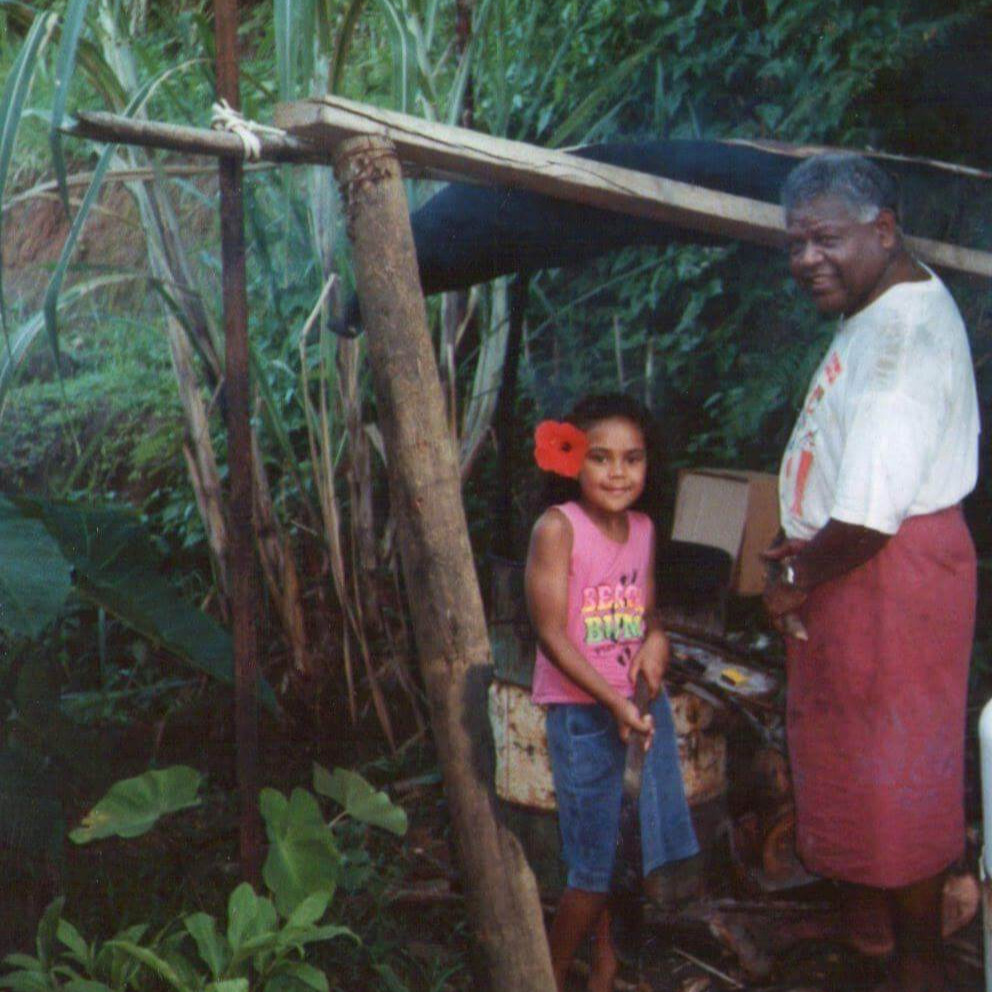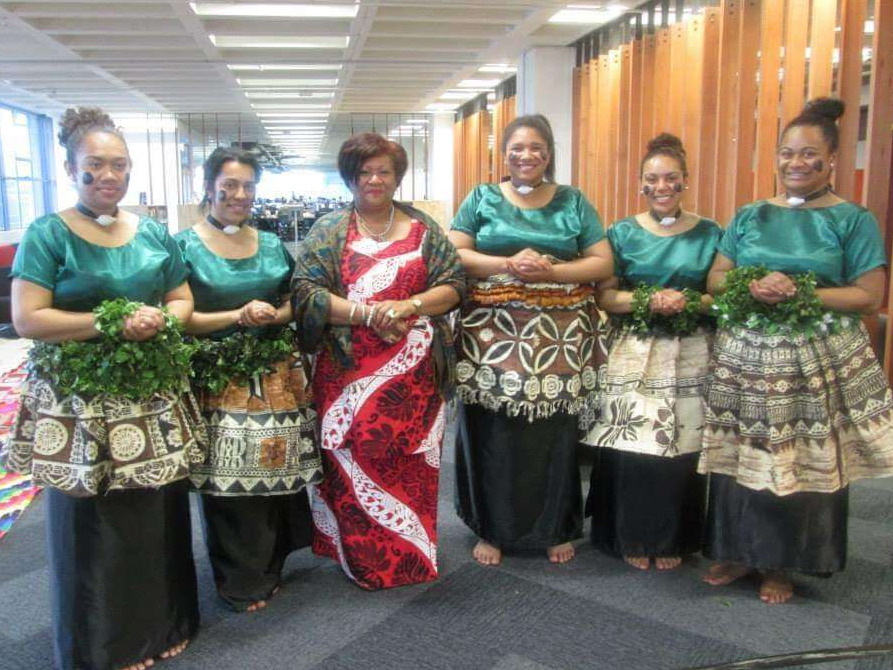Noqu vosa, noqu vanua… se cava?

The theme for Fijian Language week 2021 in Aotearoa is Noqu Vosa, Ai Vakadei ni Noqu Tiko Vinaka – My language provides stability to my wellbeing.
Initially I felt disconnected to the theme. If you already know your mother tongue and you’re well grounded in the culture and customs of your homeland, those aspects will provide a strong backbone to your wellbeing, but what if you aren’t?
What if you grew up being immersed part time in your language, because English was the currency in New Zealand for progression? For more opportunities?
I understand the language, but I cannot speak Fijian with the same confidence as someone who is fluent. I wondered, does this mean that the basic Fijian that I know, does not provide a strong foundation to my wellbeing, compared to someone who is eloquent in Fijian? I knew I needed to unpack this to understand why this theme made me feel like I didn’t belong.
As children, my brother and I loved speaking Fijian every time we travelled back to the village to stay with our maternal grandparents for the holidays. Village life was the best life, and we probably butchered the Fijian pronunciations with our kiwi accents, but our grandparents took great pride in hearing us try to speak Fijian at every opportunity.

As we became older, the fear of being embarrassed and ridiculed for botching the Fijian language, overpowered the desire to want to learn more Fijian. So ironically, it became easier to learn more of the English language than it was to become immersed in our own.
The moments of regret would come in waves, particularly when elders in our family would pass away. I feared that as our elders passed on, taking their knowledge and traditions with them, I would be left with only fragments of their knowledge and traditions to share to the next generation.
Slowly, what I lacked in the Fijian language I attempted to make up for through other means. I started by embracing my identity through my hair, shedding Western ideals of how “suitable hair” should look.
I then joined a Fijian Cultural club at Victoria University named KaiFiji and became more engaged with fellow Fijian university students. Being in that space, felt so comforting and homely. There was so much I learnt through them and through the guidance of Aunty Tuni, the mother figure of the KaiFiji club who took us under her wings. She was vibrant, wise and shared so much knowledge about the Fijian culture that I will forever be grateful for.

KaiFiji sparked a flame of curiosity in me and I wanted to learn more about my roots. Around this time, I yearned for a time travelling machine to see my Nau one last time, and to also see my Tutu before dementia started taking its toll on him, so they could share with me everything they knew.
That was a far-fetched idea, so I started asking my Mum more questions about our family history, customs and protocols in the Fijian culture, to gain a deeper understanding of my own identity and what it meant to be Fijian. She became my personal and most favourite walking encyclopaedia in all things Fijian.
When my colleague and mentor Anna Tiaki, offered me the opportunity to share my Fijian culture at National Library by leading the 2015 Fijian Language week, I was nervous because a tidal wave of fear came crashing in.
What if I was not equipped with enough knowledge about my language and culture to lead this? Anna had more faith in me than I did in myself, so I decided to push through, and I surprised myself. The event at National Library for Fijian Language week was a success and I led this event for the next three years, collaborating with the Fijian Language week komiti.
Although the Fijian language wasn’t my strong point, my passion and knowledge of the Fijian language and culture served me well in being able to share that with my colleagues. I thoroughly enjoyed being able to share my language and culture, but I still felt inadequate when it came to my knowledge of the Fijian language and it still affects me now.
Seeing the theme this year was triggering in a sense because it brought up memories from the past when I started choosing not to speak Fijian out of shame. What I know in the Fijian language may not be enough to provide stability to my wellbeing, but my Fijian vocabulary is slowly growing and filling my bilo with more knowledge.
*Bilo – cup
*Nau - Grandma
*Tutu - Grandpa
Hero Image by Ihor Malytskyi on Unsplash
The information on this site has been gathered from our content partners.
The names, terms, and labels that we present on the site may contain images or voices of deceased persons and may also reflect the bias, norms, and perspective of the period of time in which they were created. We accept that these may not be appropriate today.
If you have any concerns or questions about an item, please contact us.